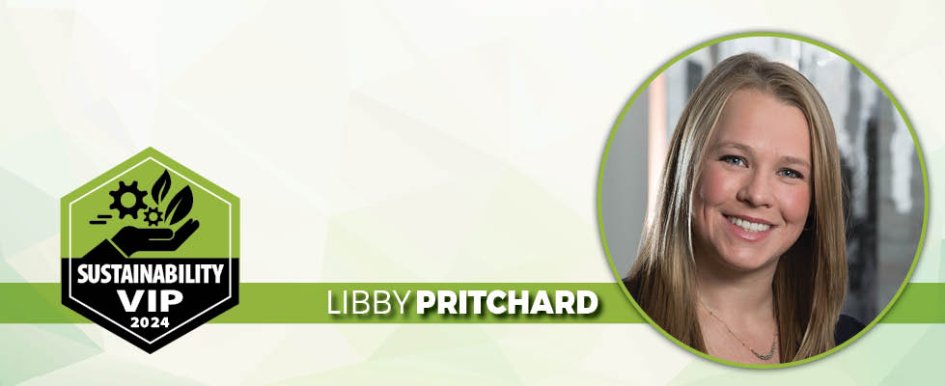
Libby Pritchard, Director of Occupational Health, Safety & Sustainability at the National Sand, Stone & Gravel Association (NSSGA), has a bachelor’s degree in environmental science and two master’s degrees: one in water policy and management, and one in geography. It was while writing her theses for those degrees that she was introduced to aggregates.
“I ended up becoming completely fascinated by it. It was this commodity that I didn’t event know existed,” Pritchard said. “I didn’t fully understand it or recognize the impact that it had on my daily life.”
The Oregon native grew up with a love of nature. But, she said, she also likes to look for win-win scenarios. Aggregate and reclamation “just clicked” when she realized how much aggregates are used to build and add amenities to communities.
“My first love of sustainability is reclamation and specifically enhancement. It’s more than your basic slope and pit. When you’re finished extracting, you turn it into something else, kind of like upcycling,” Pritchard said.
Prior to her role with NSSGA, Pritchard put those degrees to use with a quarry, helping with reclamation planning. The quarry was on farmland, and the surrounding neighborhood enjoyed the views of the undeveloped land. In the rezoning talks, Pritchard said, the company came in with a reclamation plan in place, but more importantly, Pritchard and her colleagues went out to the community and got their input.
“We talked to our neighbors … at times that worked for them. We would go to their homes and visit with them. We invited them to come to our facility,” she said. “I think the biggest thing we did was bring in a landscape architect to draw up examples of what the view would look like. … We showed them different options, asked, ‘Do you want these kinds of trees, these kinds of bushes?’ Things like that go a long way in that planning and processing.”
In her current role with NSSGA, Pritchard has added another hat and another passion: occupational health and safety. She works with the association’s member companies on questions they have on health and safety plans, with a focus on new OSHA regulations for mining operations. She also leads the workforce development team trying to address the workforce challenges in the aggregates industry. Pritchard said that health and safety initiatives go hand-in-hand with sustainability efforts.
“If you have healthier people, you’re going to have better businesses, and those better businesses are going to be able to last for many years. It’s not going to be a ‘turn and burn’ mentality,” she said. “Safe, healthy employees are going to be able to be better mothers and fathers and more active in their communities. I think that, if you start with the person as the base [of your initiatives] it really spreads from there.”
One initiative in the health and safety space Pritchard has championed in the post-pandemic years is the mental health of the workers in the mining industry. Mine workers were deemed essential during the height of the COVID-19 pandemic, and for those with children at home or spouses in health care, the mental load could become burdensome, Pritchard said.
“We started seeing a lot of accidents that were head scratchers. Why did they happen? You never know if it’s distraction or fatigue or mental overload,” she said. “You can’t put a dollar on a life … Every single life is precious and meaningful across the board.”
Pritchard said the industry still has a long way to go when it comes to the stigma of mental health, but she is seeing progress and will continue to champion efforts that treat the whole body of industry workers.



